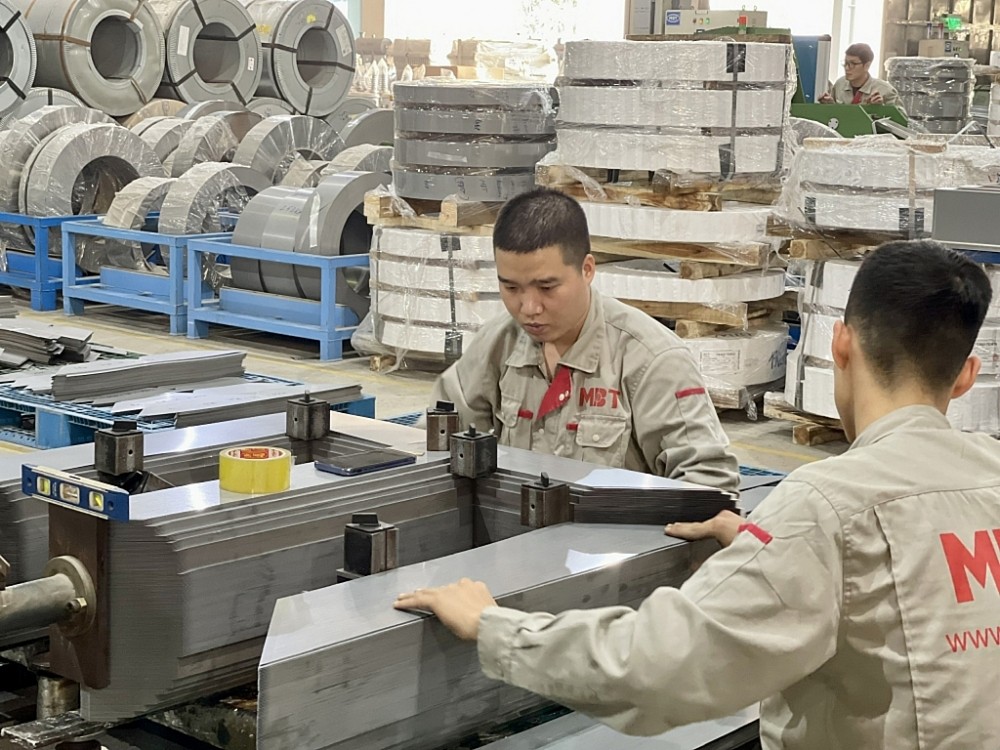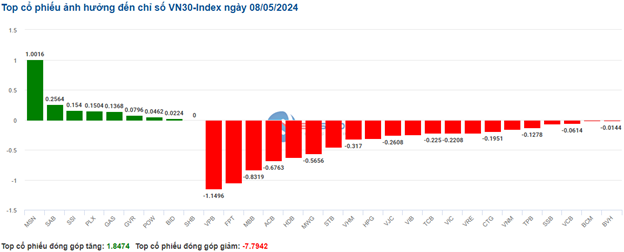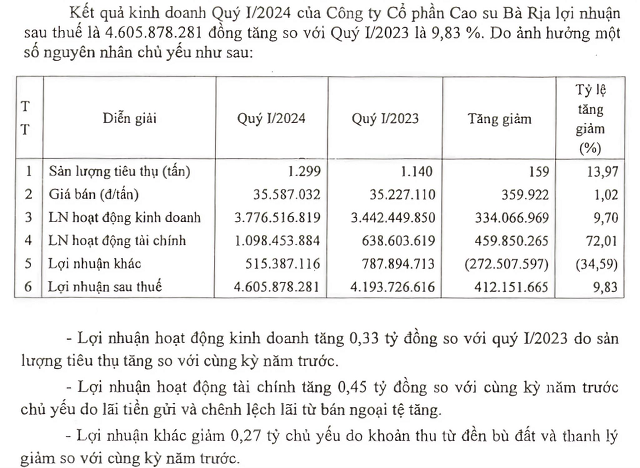Insufficient competitive capabilities in the supply chain
According to Dr. Tran Thi Mai Thanh, Faculty of International Economics and Business, National Economics University, Hanoi, the ability of domestic Vietnamese businesses to participate in the supply chain for FDI enterprises is still limited, especially supplying for large corporations. While 90% of FDI enterprises in countries like China, Malaysia, and Thailand use domestic inputs, in Vietnam this number is only about 60%. In addition, 30% of FDI enterprises are solely for export, not providing products for the domestic market, therefore there is no basis for forming forward linkages domestically.

Image: H.Diu
Addressing this issue, Mr. Pham Tuan Anh, Deputy Director of Industry Department, Ministry of Industry and Trade, stated that although the investment environment has improved significantly, there are still obstacles that need to be addressed. Infrastructure is still inadequate, causing concerns for businesses investing in Vietnam. Furthermore, the capacity of domestic businesses is still limited. “When a foreign business invests in Vietnam, they need local satellite businesses with sufficient capacity to supply products, to help minimize costs in the production process. This is still a weakness of ours,” analyzed Mr. Pham Tuan Anh.
Currently, the number of Vietnamese businesses participating in the supply chain of “giants” is still small. The biggest obstacle according to FDI businesses operating in Vietnam is that they are not satisfied with the quality and capacity of domestic suppliers.
Although in recent times, ministries, sectors, and localities have made efforts to connect industrial support businesses domestically with multinational corporations and achieved positive results, the industrial support industry is still limited, still in very low value-added segments in the supply chain. In addition, research and development (R&D) in industrial support businesses has also received attention but has not truly reached its potential. The linkages between industrial support businesses and FDI businesses have not been tight.
The latest data from the Ministry of Industry and Trade shows that currently the country has about 5,000 processing businesses participating in supplying components for the automotive and mechanical industries, of which 70% of businesses supply for domestic manufacturers and 8% supply for exporters and 17% participate in supplying for both. Thus, only about 30% of Vietnamese industrial support businesses participate in the global supply chain and value chain.
The difficulties that small and medium-sized Vietnamese businesses face when participating in the global production network are the inability to meet demand prices due to high production costs. Besides, the majority of businesses have small scale, so they can only fulfill small orders, while it is difficult for them to meet the deadlines for large orders and lack quality in processing stages, etc.
In addition, many businesses are weak in distribution channels, have limited commercial capacity, lack information about trends, technology, markets, products, competitors, or suppliers,…
According to experts, when a foreign business invests in Vietnam, they often receive significant support from foreign parent companies. In addition, FDI businesses in Vietnam bring along satellite companies, businesses that have previously worked together to build the supply system in Vietnam.
Which solutions will help Vietnamese businesses participate in the supply chain?
According to the Industrial Department (Ministry of Industry and Trade), from 2015 to now, many industrial development support policies have been issued by the Government, Ministry of Industry and Trade to promote the support industry. However, the current support industry development policy still lacks effective mechanisms to connect supplying businesses with manufacturing businesses.
Identifying the internal weaknesses and shortcomings of previous policies, the Ministry of Industry and Trade has submitted a proposal to Deputy Prime Minister Tran Hong Ha to absorb opinions on the draft amendment to Decree No. 111/2015/ND-CP of the Government (Decree 111) on development of support industry with many new preferential policies. With about 5,000 current industrial support businesses, the Ministry of Industry and Trade proposes that businesses with projects producing industrial support products in the list of priority development products will enjoy incentives, including corporate income tax incentives.
The draft proposes to establish many support mechanisms, policies such as: Promote attracting domestic and foreign investment, connect supporting businesses to become product suppliers; support human resource training; support research and development, trial production, application, technology transfer, and innovation… In terms of capital, the Ministry of Industry and Trade proposes that the central budget support provide interest subsidies through the commercial banking system with medium and long-term loans in Vietnamese dong for businesses to invest in projects. The proposed differential interest subsidy rate is 3% per year. The time that the state provides credit support is equal to the loan period, but not more than 10 years from the date of signing the loan agreement. This policy applies to agreed loans, disbursement realized until the end of 2030.
Another bottleneck that industrial support businesses mentioned is that the Vietnamese support industry market is still small, and the output is low, so it has not attracted partner businesses. Therefore, it is necessary to increase the localization rate for Vietnamese industrial products, which still faces many difficulties.
Sharing about this content, Mr. Nguyen Van, Vice Chairman of Hanoi Association of Industrial Support Businesses (HANSIBA), said that not a few small and medium-sized industrial support businesses have stepped up technology investment, equipment, and human resources to meet increasingly high standards of partner businesses and foreign businesses in Vietnam. The problem is that businesses have not met each other, so they need connectivity with support from management agencies, in which the important role lies with professional associations. According to Mr. Van, participating in professional associations will help member businesses connect with each other as well as create many promotion programs, connecting member businesses with domestic and international partners.
In addition, according to industrial support businesses, in order to quickly participate in the global supply chain, the State needs to further enhance support policies, incentives for taxes, human resource training, credit, and market… The planning, development of industrial support areas must be linked to the supply chains of international corporations as well as domestic businesses with reasonable policies… Management agencies also need support in commercial capacity and connecting domestic businesses with foreign businesses and multinational corporations.
Dr. Nguyen Quoc Viet, Vietnam Institute for Economic and Policy Research (VEPR), believes that to promote the linkage between FDI enterprises and domestic businesses, take advantage of technology spillover effects and help Vietnamese businesses participate more deeply in the global value chain, regional linkage is necessary. The government needs to promote the development of production regions, industrial zones, economic zones to be more proactive in the supply of raw materials, forming a closed linkage chain.
Parallel to this, advanced technology transfer needs to be strengthened. On the government side, there needs to be perfecting legal documents related to investment, transfer of advanced technology, environmental friendly and sustainable development… Businesses need to be more proactive in finding technology transfer opportunities from FDI businesses. At the same time, promote the development of the support industry in association with the global value chain.






































